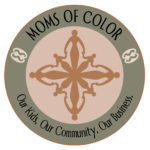
In the heart of every mother lies a profound strength and a deep well of compassion. For African American mothers, cultivating mental wellness amidst life’s whirlwind is essential. The embrace of mindfulness practices and meditation has emerged as a guiding light, offering peace, stress relief, and improved emotional well-being. These practices stand as a testament to the power of inner calm and self-connection, serving as vital tools for navigating the complexities of motherhood and beyond.
Hosted by Moms of Color, events like “Meditate and Release” and “Harmony Hour” are tailored specifically for the unique journey of African American mothers. “Meditate and Release” allows mothers to gather in solidarity, sharing their stories and engaging in the liberating act of release through guided meditation. This collective experience fosters a sense of community and shared understanding, creating a space where every voice is heard and valued.
“Harmony Hour” is another upcoming event that promises a tranquil escape into mindfulness. This one-hour retreat, dedicated to nurturing the spirit, offers African American mothers a chance to connect with their core through guided meditation, fostering a sense of peace and empowerment. The open sharing circle and concluding gratitude practice further enhance this journey, enriching the bonds among participants. Tickets for this soulful gathering can be found at Moms of Color Events.
Extending mindfulness to the younger generation, “Afro Yogi Kids” (afroyogikids.com) introduces children to the principles of mindfulness and meditation. This initiative underscores the importance of emotional well-being from an early age, creating a family culture anchored in peace and self-awareness.
This focus on mindfulness and meditation is more than just a series of practices; it’s a pathway to a deeper understanding of oneself and a more harmonious life. For African American mothers, these moments of tranquility are not only acts of self-care but also powerful steps toward nurturing a legacy of wellness and emotional health.
As we continue to highlight mental health, the embrace of mindfulness and meditation by Moms of Color represents a commitment to the well-being of African American mothers and their families. It’s about creating spaces where mothers can find peace, support, and connection, ensuring that every mom has the tools to navigate her journey with grace and empowerment.
With Love, Lakischa Smith
Meet Lakischa Smith, a proud mother and a dedicated public health advocate. With a Bachelor’s from Dillard University and a Master’s in Public Health from Florida International University, she’s committed to sharing honest narratives about black motherhood. Lakischa believes in fostering sisterhood to combat the pervasive forces of white supremacy, and empowering African American women to be agents of change for future generations. She asserts that recognizing and addressing our community’s struggles is crucial, for healing is the key to moving forward. Armed with the power of education and a deep belief in collective action, Lakischa is determined to ensure that the issues impacting African American parenthood aren’t just seen—they’re addressed and resolved.










